Paris attacks: The huge implications for Europe
- Published
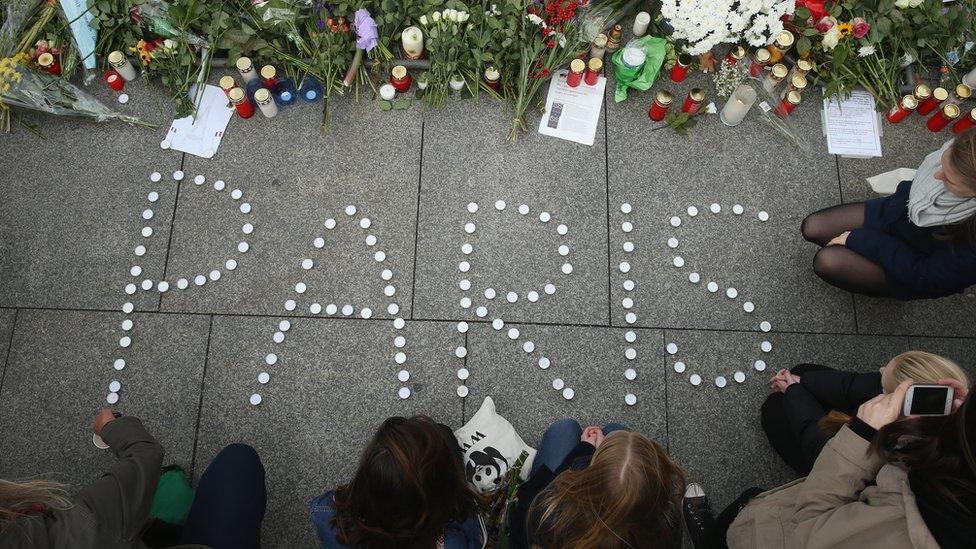
The effects of the attacks in Paris are being felt across Europe
Boarding the train last night from Paris to Brussels, I had a bit of an unholy feeling, as did many of my fellow passengers.
I caught their eye as we settled nervously into our seats, and then looked away sheepishly.
How can you know which parcel, which passenger is suspicious?
Until it is too late.
Those who seek to sow fear and suspicion, to disrupt the security and stability of Europe we all too often take for granted, have succeeded in the short term.
Since the attacks on everyday Paris - local restaurants, a small concert hall and a football stadium - there is a sense of vulnerability across Europe: amongst parents with small children on packed buses, amongst young lovers off to the cinema.
Rome is installing metal detectors at the Colosseum after the FBI highlighted Italian monuments as terror targets.
Brussels cancelled an annual student festival in the city centre citing security concerns.
Copenhagen airport shut one of its terminals after a suspicious package alert.
Sweden raised the alarm nationwide after receiving intelligence of a planned attack, the same reason behind the last minute cancellation of this week's Germany-Netherlands football match in Hannover.
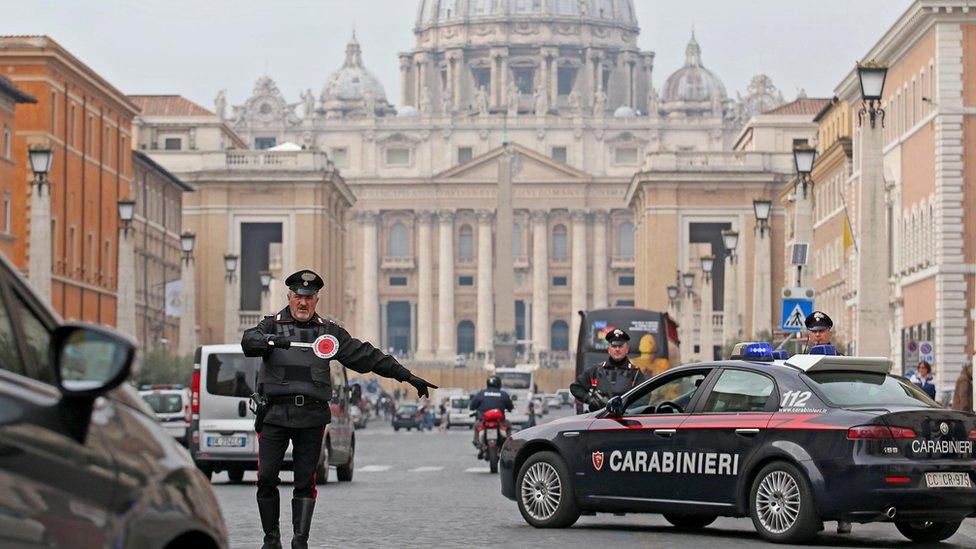
Security has been beefed up in Rome and other parts of Europe
There are armed guards in the metro and soldiers in railway stations.
As well as the military operations underway in residential Paris and Brussels, the manhunt for missing gunmen and accomplices linked to the Paris attacks continues.
Those who follow the news on this continent are used to images of Middle Eastern turmoil. Now they fear the chaos and bloodshed has come home here.
United against IS?
France's normally quietly spoken President Francois Hollande has proclaimed over and again this week that his country is at war.
Agree with him or not, these are tough words with huge implications - for France's foreign policy in the Middle East, for civil liberties at home and for Europe as a whole.
Public outrage following the Paris attacks has united European countries (superficially at least) following recent bitter rifts over migration and the euro crisis.
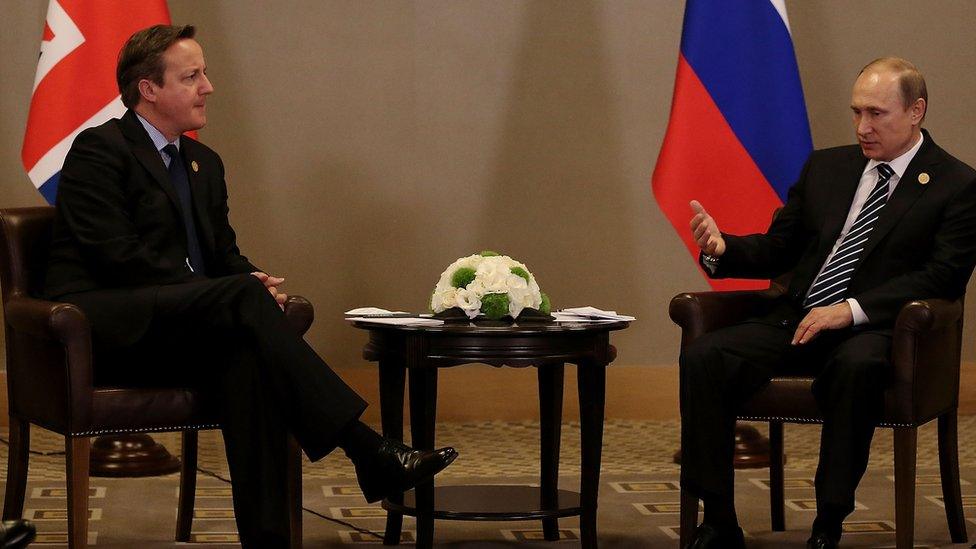
The crisis could see ties between Russia and other European countries strengthened
They might also be a catalyst for bringing Russia back in from the cold.
France has declared it wants to destroy the so-called Islamic State (IS), which says it organised the Paris attacks.
But France can't go at it alone.
Russia is keen to be on board - and have its sanctions lifted. The recent G20 saw President Vladimir Putin chatting with President Barack Obama and Prime Minister David Cameron.
It is premature to speak of a grand anti-IS Coalition, but there are whispers of one in the making.
Implications for Schengen
This is also a critical moment for European security.
French Interior Minister Bernard Cazeneuve has scolded fellow ministers for having "wasted too much time" on anti-terrorism, calling for action.
Fingers are again pointing at Schengen, that agreement between 26 European nations allowing passport-free travel from Helsinki to Malaga.
It is celebrated by the EU as one of its greatest achievements, allowing the free movement of goods and people across the continent.

More on the Paris attacks
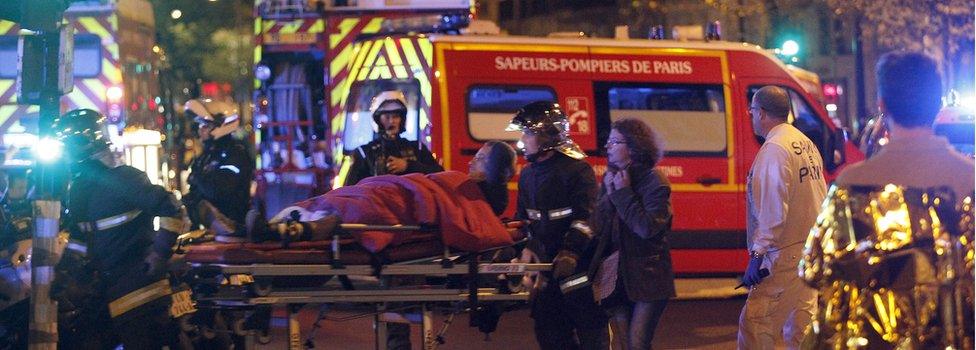

But post-Paris, it is accused of allowing the free movement of terrorists too, as it emerged, for example, that Belgian national Abaaoud travelled undetected from Syria to France.
France is demanding the more effective use of the Schengen Information System: a shared database allowing security forces to raise pan-Schengen alerts on individuals, objects and vehicles.
It is also calling for the easier sharing of airline passenger data and for a true Europe-wide agency to police Schengen's external borders. Though ministers still reject the idea of the latter.
Promises to actions?
Political promises flow easily following heart-stopping atrocities but as a high-level UK security advisor pointed out to me, secret services like to keep information, well, secret.
Sadly, Europe has experienced a number of terror attacks in recent years.
After Madrid in 2004, London in 2005 and this year's Charlie Hebdo attacks in Paris, pledges were made on cross-border co-operation.
They have all too easily dissolved into cross-border squabbling.
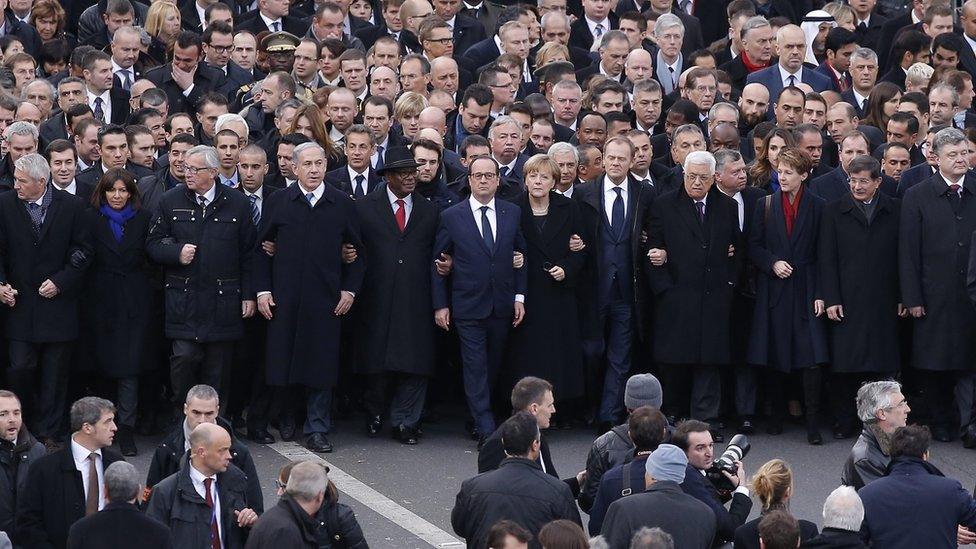
The Charlie Hebdo attacks saw European leaders rally around France in support
Maybe this time will be different.
There is a sense of urgency with the prospect of terror looming large.
The Le Pens of France, the Wilders of the Netherlands and the Salvinis of Italy want Europe to pull up the drawbridge on migrants but the attacks in Paris have highlighted the issue of home-grown jihad.
That horrific assault one innocent Friday night in Paris is having a huge impact on Europe as a whole.
Debates are now heated and passionate, about migrants, borders, Schengen, civil liberties, Assad, IS and more.
But once the dust has settled a bit, whose words will turn into actions?